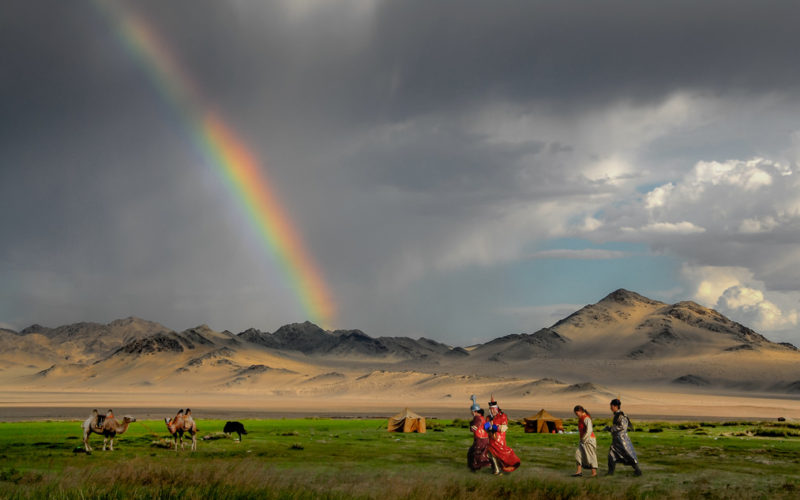In 2016 I spent two months volunteering as a reporter at the UB Post in Ulaanbaatar, Mongolia. The previous year I had been made redundant from my job at a local newspaper in the UK and wanted to put the money I received to good use, but I
also wanted to travel. I thought the best way to do this would be to do an internship in a different country.
I’d like to say I put a lot of time and effort into researching where I was going to go, but I didn’t. After a quick Google search I found the website of Global Nomadic and saw they offered journalism internships in Mongolia. I didn’t know anyone who had ever been to Mongolia, and had no idea what the country was like or what to expect. All I knew was that it was a long way from home. This was exactly what I was looking for. I signed up that afternoon.
I flew into Ulaanbaatar on February 2, and moved in with a host family, a mother and daughter who wanted to practice their English. During my stay with them they invited me to celebrate Tsagaan Sar, Mongolian new year, with them. This involved meeting all of their extended family and eating a lot of Mongolian food, such as meat dumplings called buuz, and a sort of sweet made of dried horse milk.
My host family also showed me around Ulaanbaatar and took me to one of their favourite hiking places in the countryside where we visited a Buddhist monastery. They were wonderful hosts and very friendly and welcoming, just like all the Mongolian people I met during my stay.
Mongolia is known as the Land of Blue Sky but I didn’t see much of it during my visit. In winter Ulaanbaatar is the coldest capital in the world and during the two months I was there the temperatures regularly dropped to -30 degrees Celsius. The capital city itself is small, but is ringed by the ger district, where families who used to be herders in the countryside now live in traditional round felt tents called gers.
In the winter they burn coal, plastic and rubbish to keep warm as they have nothing else. This creates a lot of air pollution and makes children very sick. It also made me very ill and I
spent 6 of my 8 weeks in Mongolia feeling very ill and with a horrible cough.
During my time at the paper I got to report on all sorts of stories. I met the founders of Mongolia’s only cricket team who were building their first pitch. I went to parliament and spoke to MPs who were campaigning for women’s rights and met a charity trying to breed dogs for herders to use in the countryside. The team of reporters I worked with were lovely and friendly and invited me to eat lunch with them whenever I was in the office.
At the start of March, I travelled with the Mongolian Red Cross to help them assist herders whose animals were dying in the countryside, in a natural phenomenon called a dzud for a feature story. This is when there is a drought in summer, meaning animals cannot put on weight for winter, and then a very cold winter which kills the herders’ goats, horses and cows. That winter, in some parts of Mongolia, the temperature had dropped to -50 degrees Celsius. By the end of May more than one million animals had died.
We flew to Uvs province, in Western Mongolia, more than 1000km from Ulaanbaatar. After two days of travelling through the countryside – the roads ran out after two hours of driving on the first day – we reached the herders in need and gave them emergency food, clothes and money to survive the winter.
It was hard for me to comprehend how vast Mongolia is as a place. There’s so much space and nobody occupying it. I would love to go back to Mongolia one day to experience what the country is like in the summer, and to really see the Land of Blue Sky.
Helen Wright is a British freelance journalist who has written for newspapers and websites in England, Estonia and Mongolia. She volunteered in Tallinn, Estonia, and became an early member of World Wide Travellers.
